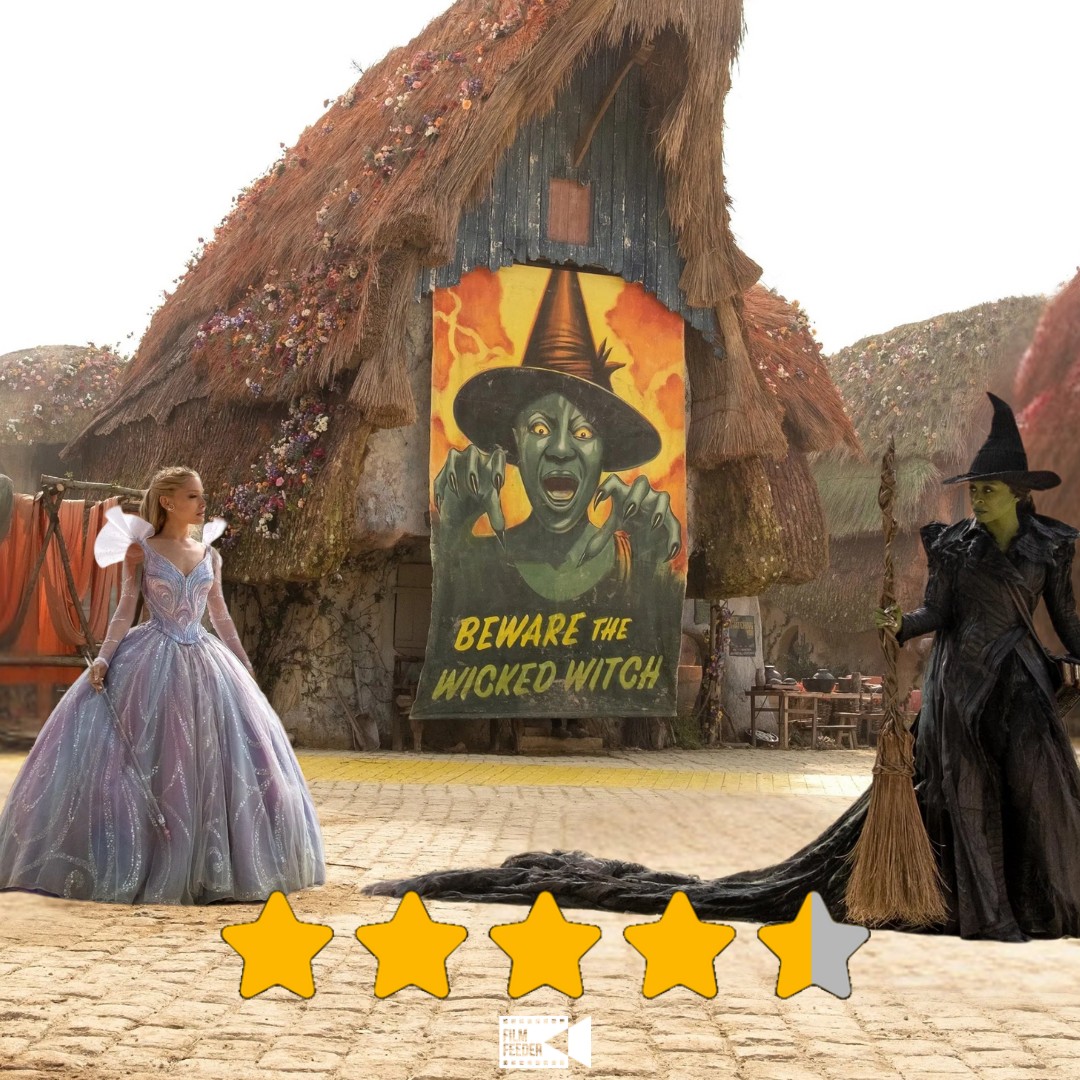
I’m Still Here (dir. Walter Salles)
Certificate: TBC
Running Time: 135 mins
UK Distributor: Altitude Films
UK Release Date: 21 February 2025
WHO’S IN I’M STILL HERE?
Fernanda Torres, Selton Mello, Guilherme Silveira, Valentina Herszage, Luiza Kosovski, Barbara Luz, Cora Mora, Humberto Carrão, Maeve Jinkings, Caio Horowicz, Camila Márdila, Charles Fricks, Luana Nastas, Isadora Ruppert, Daniel Dantas, Maitê Padilha, Carla Ribas, Pri Helena, Antonio Saboia, Maria Manoella, Marjorie Estiano, Gabriela Carneiro da Cunha, Olívia Torres, Fernanda Montenegro
WHO’S BEHIND THE CAMERA?
Walter Salles (director), Murilo Hauser and Heitor Lorega (writers), Maria Carlota Bruno, Martine de Clermont-Tonnerre and Rodrigo Teixeira (producers), Warren Ellis (composer), Adrian Teijido (cinematographer), Affonso Gonçalves (editor)
WHAT’S IT ABOUT?
In 1970s Brazil, a family is dealt a devastating blow from the country’s military dictatorship…
WHAT ARE MY THOUGHTS ON I’M STILL HERE?
As the political pendulum swings further right across the world, one only needs to look toward Brazil and its dark recent history as a stark reminder of what kind of reality some countries might be heading towards. Between 1964 and 1985, the country was under heavy rule by military forces, who used invasive and often torturous tactics to censor critical media and eradicate whomever they deemed a threat, resulting in the deaths of hundreds (possibly more) throughout those 21 years.
To read about it is one thing, but to live through it is another, and while I cannot personally say that I or any members of my family experienced the cruelty of Brazil’s military dictatorship first-hand, that does not mean that sympathy cannot be expressed for those who did. Among those worthy of sympathy are the family of Rubens Paiva, the former congressman who was one of many accused dissidents that was taken in and then later “disappeared” with barely a trace, leaving his wife Eunice and their several children to deal with the emotional and psychological fallout. It is their story that director Walter Salles chooses to tell in I’m Still Here, a moving and frankly astounding depiction of family life underneath such harsh conditions that will leave you wiping away tears and fuming with anger simultaneously.
Set in the early 1970s, during the peak of Brazil’s dictatorship, the movie initially follows Rubens (Selton Mello) as he’s living a comfortable and happy life with Eunice (Fernanda Torres) and their children Marcelo (Guilherme Silveira), Vera (Valentina Herszage), Eliana (Luiza Kosovski), Nalu (Barbara Luz) and Maria (Cora Mora). Situated in a nice house just a stone’s throw away from the beaches of Rio de Janeiro, the family clearly care and look out for one another, even throwing a nice going-away party for eldest Vera before she migrates to London, all while reports of kidnapped diplomats dominated the state-controlled news cycle. Things change, of course, when one day a group of sinister men arrive at their house and escort Rubens away for “questioning”, never to be seen again, with Eunice also being held in a cell and interrogated for a number of days before being released. The family must now wrestle with the aftermath of having their happiness ripped away from them, in a show of emotional force that in its own way defies the cruel and oppressive system that they can no longer ignore.
Adapting Marcelo Rubens Paiva’s book of the same name is clearly a personal endeavour for director Salles, who actually grew up knowing the Paiva family during that pivotal period and has wisely taken himself out of the dramatic equation to allow their drama the full focus it deserves. His film, with a script by Murilo Hauser and Heitor Lorega, delicately captures the nostalgia of the era with warm Super-8 footage overlaying happy moments of this family bonding and playfully teasing one another, offering a documentarian approach that posits them as organic people caught in this real situation, rather than overly theatrical characters with big emotionally manipulative monologues. Salles treats every single family member with dignity and respect, but most of all with plenty of compassion as they fight their own internal battles in the aftermath of their patriarch’s removal.
The director also does a grand job of making this authoritarian environment feel suffocating and even quite scary in places. The men that initially waltz into the family’s house, armed with military-grade silencers and sinister scowls across their faces, intimidate quite easily with mannerisms like they’re the villains in a home invasion movie, but it’s the sheer abuse of the power that they wield that makes them legitimately creepy at times. Salles carries this feeling of dread across most of the rest of the film, as you’re always on guard waiting for things to become chaotic at any moment if someone says or does the wrong thing at the worst possible time, a direct contrast to the pleasantly sunny beaches and seemingly free-spirited nature of the pot-smoking youth that he presents in his own vivid memory of 70s Brazil.
Most of all, however, I’m Still Here leaves you with plenty of underlying rage that such traumatic events happened to not just this family, but countless others who happened to fall under mere suspicion of dissidence. You feel so much frustration as Eunice – brought to life via a truly bravura performance by Fernanda Torres – desperately presses for answers that nobody is willing to give her as to her husband’s whereabouts, and for the children whose childhoods are effectively ended the moment their loving father is taken from their lives forever. It is nothing short of devastating for any family to be torn apart in such a fashion, especially by those in power, and Salles portrays their grief with a resounding honesty while also, quite crucially, not overlooking the light hopefulness surrounding the stability of their union in light of what they’ve gone through. In one poignant scene, the family refuses to stop smiling when taking a photograph for a news story about their loss, which goes to show their resilience and refusal to give up what little remains of their humanity.
That, after all, is how we ensure fascism never succeeds: by retaining our hope, no matter how much they try and suppress it until mere submission. The people of Brazil, least of all the Paiva family, knew this far too well, and it is something that I’m Still Here conveys with all its emotional power and resonance.
SO, TO SUM UP…
I’m Still Here is a deeply and exceptionally emotional family drama that highlights the horrors and suppression of Brazil’s military dictatorship, which director Walter Salles gives a personal touch that only adds to the underlying anger at the central situation, conveyed beautifully by a resilient lead turn by Fernanda Torres.














0 Comments